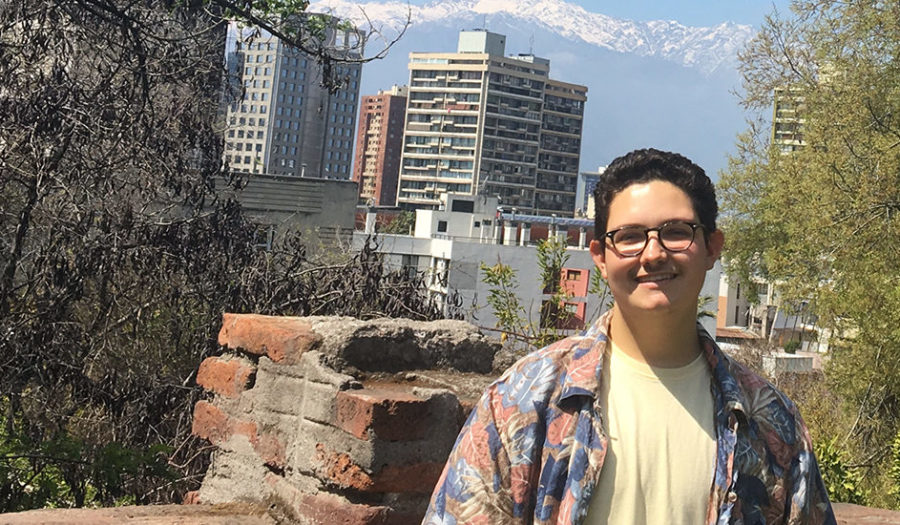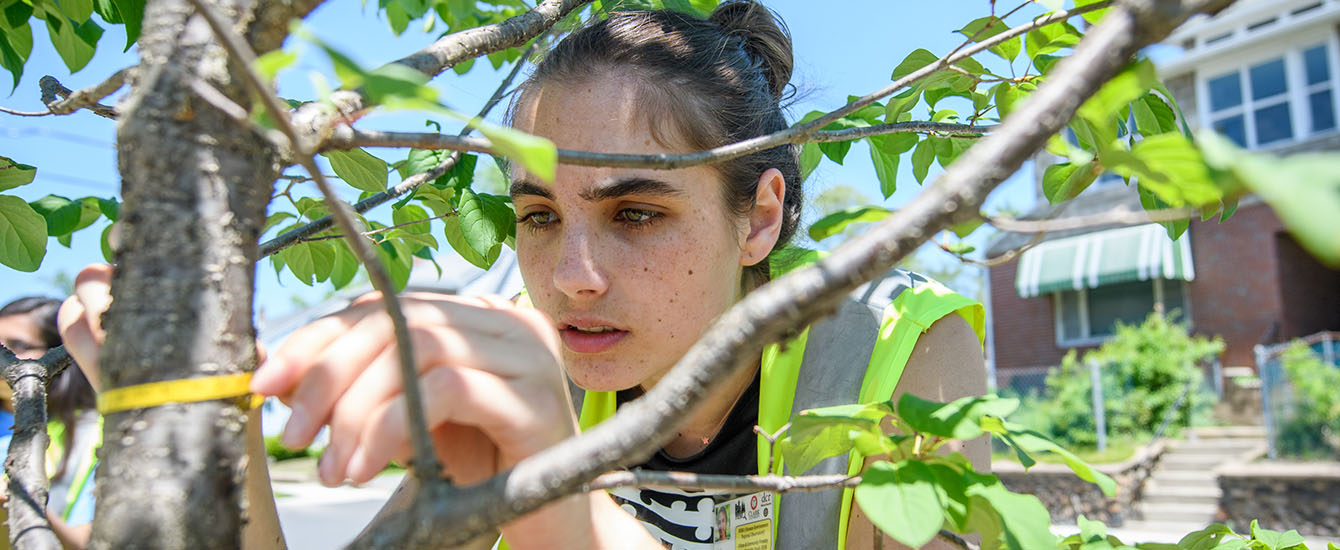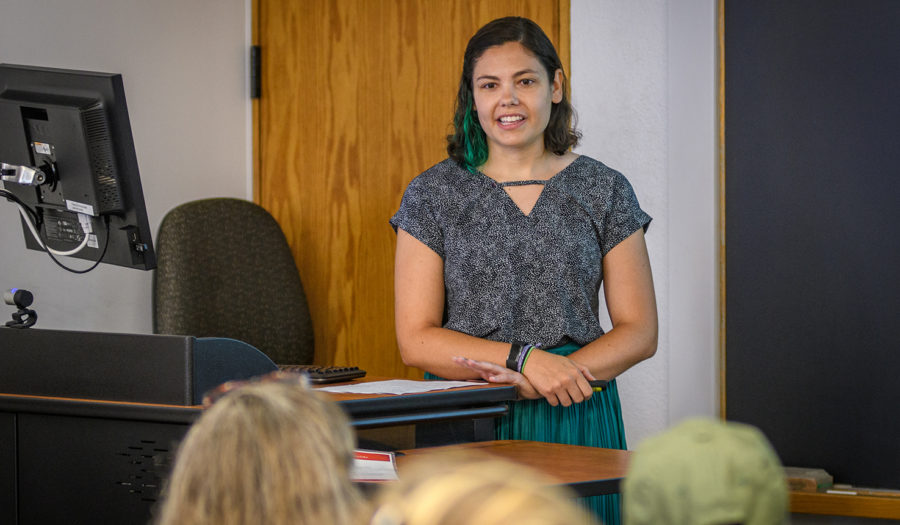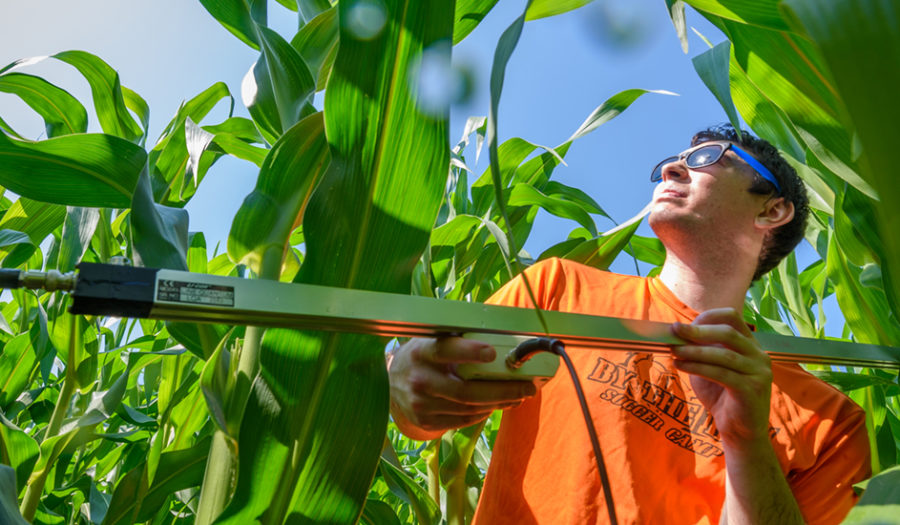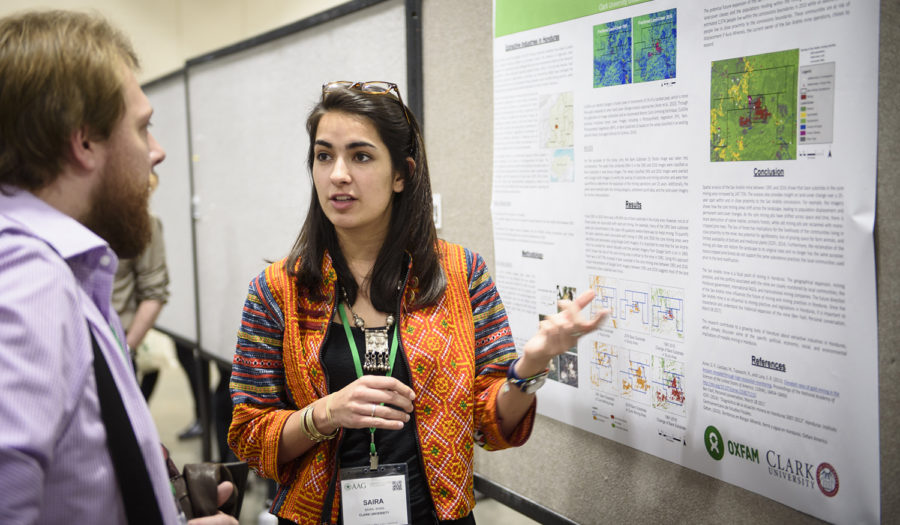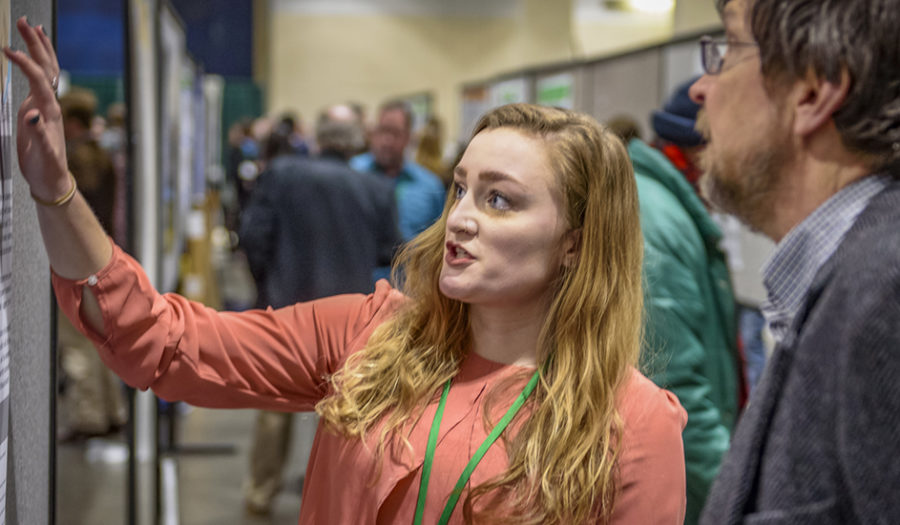If you are interested in exploring a research topic even further, you may apply to the honors program during your junior year, working closely with faculty mentor to conduct independent research and produce an honors thesis. For more information, read the Honors Program Guide.
The following list represents undergraduate theses that have been completed in the past few years.
2021
Murray, Sadie, “Simpler is more effective than complex for a GIS-based simulation”; Gil Pontius, adviser
Samara, Aandishah, “Satellite-Based Observations of Cloud Cover Responses to Declining Sea Ice in the Pacific Arctic Region”; Karen Frey, adviser
2020
Reault, Shannon, “Is the Bering Sea the New Hotspot of Sea Ice Decline? A Comparative Analysis of First-Year Sea Ice Trends in the Barents and Bering Seas”; Karen Frey, adviser
Spiliotopoulos, Sophie, “Spatial Relationships of Chlorophyll-a and Suspended Particulate Matter in the Pacific Arctic through In-Situ and Satellite Data”; Karen Frey, adviser
Strzempko, Jessica, “Burn Severity and Vegetation Recovery Analysis for the Anaktuvuk River Fire on the North Slope Tundra of Alaska”; Karen Frey, adviser
Williams, Caroline, “Examining the relationship between local climate and forest cover in the United States”; Chris Williams, adviser
2019
Baldwin, Eli, “Predicting Maize Yield Using High-Resolution Imagery”; Lyndon Estes, adviser
Berger, Anika, “Mapping Suitability for Mining-Related Deforestation in Madre De Dios, Peru Through Predictive Modeling”; Florencia Sangermano, adviser
Brooks, Iolanthe, “Prison Transfers and Carceral Logics”; Asha Best, adviser
Chaitman, Jamieson, “Defining the impact of a derived topographical index on mapping mangroves and peatlands in Indonesia”; Ron Eastman, adviser
Himmelberger, Anthony, “Investigating the Fragmentation of Pacific Walrus Sea-Ice Habitat in the Saint Lawrence Island and Wainwright Regions of the Bering and Chukchi Seas (Alaska) using Landsat Satellite Data”; Karen Frey, adviser
Landry, Olivia, “Assessing the Environmental Factors Associated with Turtle Roadkill in Massachusetts”; Florencia Sangermano, adviser
Pagan, Andrew, “Assessing the impact of established juvenile trees on land surface temperature in Burncoat and Greendale neighborhoods of Worcester, MA”; John Rogan, adviser
Shapton, Claire, “Articulations of Home: Preserving Manufactured Housing in the Gentrifying City”; Deborah Martin, adviser
2018
Anderson, Tyler, “Effect of MA Forest to Urban Conversion”; John Rogan, adviser
Bhanti, Meyru, “Does the Distribution of Juvenile Tree Planting Impact Local Air Temperature? A Calibrated Microclimate Simulation in Holyoke Massachusetts.”; John Rogan, adviser
Bram, Nathan, “Redevelopment in Haifa: mitigating interests in a “mixed” city.”; Deb Martin, adviser
Corney, Hannah, “The Impact of Juvenile and Mature Trees on Air Temperature Fluxes: Employing ENVI-met in the city of Chelsea, Massachusetts”; John Rogan, adviser
Jackson, Ian, “Contentious Property, Contentious Citizenship: The Construction of a Houseless Village in Portland, Oregon”; Mark Davidson, adviser
Jreije, Anthony, “Analyzing the Westborough and Grafton Commuter Rail Stations through the Lens of Transit Oriented Development”; Deb Martin (GEOG) & Wayne Gray (ECON), advisers
Robbins, Carly, “Finding Harmful Algae Using High Resolution Satellites”; Florencia Sangermano, adviser
Trevor, Gabe, “Identifying Socioeconomic and Demographic Voting Patterns in the 2016 Presidential Election in Minnesota and Wisconsin Using GIS and Spatial Analysis”; Yelena Ogneva-Himmelberger, adviser
Weule Chandler, Miles-Philbert, “Developing a Tree Planting Priority Index to support urban greening for the Greening the Gateway Cities Program in Fitchburg, Massachusetts”; John Rogan, adviser
2017
Bayler, Claire, “Reconciliation: Changing Pressures on Sustainable Urban Agriculture in Cuba”; Dianne Rocheleau, adviser
Epstein, Gabe, “Creating Social and Environmental Uplift: Examining the Feasibility and Effects of Rooftop Solar Panels for Environmental Justice Communities in Worcester, MA”; Mark Davidson, adviser
Esmaeili, Shirin, “Analysis on Zoning Regulations and Land Use Change in Worcester, Massachusetts with a focus on “Live, Work, Play” model and Investment in Residential Development, 2009-2016″; Deb Martin, adviser
Filipovic, Ali, “Modeling the hydrological ecosystem services of juvenile trees in northern Worcester, MA using iTree Hydro”; John Rogan & Deb Martin, advisers
Fitzgerald, Saraneh, “A Time Series of Sea Ice Melt Pond Distribution Across the Arctic”; Karen Frey, adviser
Freud, Emma, “Conceptualizing Social-Ecological Solutions to Environmental Injustice: A Case Study of Worcester’s Urban Forest”; Deb Martin, adviser
Heikes, Will, “Media Underreporting and Disasters: A GIS analysis of traditional and social media response to the 2016 Louisiana Flooding disaster”; Yuko Aoyama, adviser
Jacobsen, Madilyn, “The Impact of Public Transportation on Youth in Worcester, MA”; Deb Martin, adviser
Khan, Saira, “Characterizing the Spatial Expansion of the San Andres Mine between 1991 and 2016 in Copan, Honduras”; John Rogan, adviser
Layugan, Anela, “The Detection of Change Points in Arctic Sea Ice Cover across Different Spatial Scales, Locations, and Seasons”; Karen Frey, adviser
Miranda, Isabel, “Characterizing tree cover change in response to urban greening initiatives using an in situ tree inventory, WorldView-2 and LiDAR data in Worcester, Massachusetts” (completed Dec 2016); John Rogan, adviser
Molloy, Mary, “A Comparative Study on Wildlife Corridor-Mapping Programs”; Ron Eastman, adviser
O’Brien, David, “GIS Validation for projects to Reduce Emissions due to Deforestation and Forest Degradation (REDD)”; Gil Pontius, adviser
Reyes Saade, Daniela, “A Temporal and Spatial Analysis of Dengue and Chikungunya Viruses in El Salvador”; Florencia Sangermano, adviser
Sanford, Savannah, “Mapping Juvenile Tree Vulnerability to Environmental Phenomena with Climate Change in Worcester, Massachusetts”; John Rogan & Deb Martin, advisers
Simonson, Eli, “Using a Planting Priority Index to select optimal locations for tree planting in Worcester, Massachusetts”; John Rogan & Deb Martin, advisers
Singh, Rishi, “Modeling Ecosystem Services of Juvenile Trees in Worcester, MA ALB Regulated Area using i-Tree Eco”; John Rogan & Deb Martin, advisers
Smith, Tom “Time Series Analysis of Global and Biome Specific Trends in Vegetation Productivity using AVHRR NDVI-3g data from 1982-2015”; Ron Eastman, adviser
Smuthkochorn, Charis, “From Green Revolution to Organic Revolution: The Development of Inequality in Thailand and Resistance in Surin Province”; Yuko Aoyama, adviser
2016
Fuchino, Yuka, “Characterizing the Social-Environmental risks to the Urban Forest in Worcester, MA”, John Rogan & Deb Martin, advisers
Goldman, Eli , “Characterizing the Role of the Built Environment in Determining Juvenile-Tree Survivorship in Worcester, Massachusetts”; John Rogan & Deb Martin, advisers
Johnson, Kim, “Children’s Perceptions of the environment in Worcester, MA: An evaluation of environmental education in an urban environment”; John Rogan, adviser
Landesman, Katherine, “Characterizing Mangrove Distribution and Change in Antsohihy, Madagascar”; John Rogan, adviser
Rosenblum, Hannah, “Determining Detectability of Juvenile Trees with Airborne LiDAR”; John Rogan & Deb Martin, advisers
Scott, Warren, “Sea ice trends in the Cape Bathurst and Saint Lawrence Island Polynyas, 1980-2014”; Karen Frey, adviser
Shah, Sanika, “Lifting the Curtain on Myanmar’s Foreign Investments: Analyzing the Determinants, Strengths and Constraints of Foreign Investments in Myanmar”; Yuko Aoyama, adviser
Truong, Chung, “Identifying Optimal Tree Planting Locations in Worcester, MA Using Spatial Multi-Criteria Decision Analysis”; John Rogan & Deb Martin, advisers
